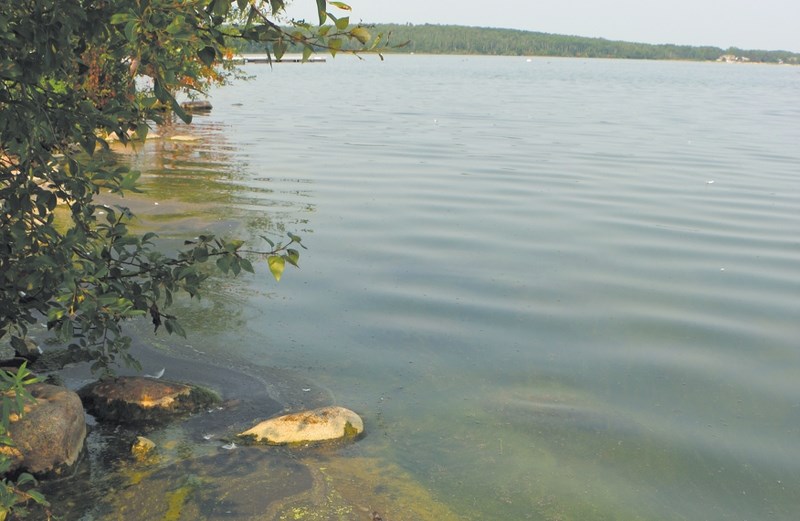Local groups and municipalities are banding together for the betterment of Moose Lake.
The Moose Lake Watershed Society, the Town and MD of Bonnyville, the Lakeland Agricultural Research Association (LARA), and the Lakeland Industry and Community Association (LICA) have come together to address the issues raised by residents about the health of Moose Lake.
“Our hope is for people to become more engaged with the society,” detailed Moose Lake Watershed Society board member and LARA environmental program manager Kellie Nichiporik. “We can look at what kind of projects people would like to see around the lake, if people have ideas for funding sources, and where we can best spend our funding to get the most impactful change.”
Garnering support for the watershed society is what Reeve Greg Sawchuk believes is needed, as well as the involvement of the municipalities and groups like LARA and LICA.
“There always has to be ownership. Looking around the province, our staff actually found out that places where they’ve experienced similar situations, they’ve actually had greater success when you’ve had the residents step up and lead the societies versus having the municipalities lead it. I think it’s because it’s ownership, and there’s more of a willingness when you have the residents working together,” Sawchuk noted.
While a single solution won’t solve all of the lake’s issues, efforts are being made to improve its overall health.
“The society would like to see residents and recreational users who want to see an improvement in Moose Lake become an active part of the change,” explained Moose Lake Watershed Society board member Katlyn Macdonald. “The changes that have to happen around Moose Lake can’t, and won’t, be solved by a single action or group of people.”
Moose Lake is unnaturally high in nutrients, which has only been increased by the high water levels and flooding conditions it has experienced in the past two years.
“This has been ongoing for a number of years now, there’s been a couple of reports done... One of the things we’re looking at doing, is saying ‘hey, we’ve got some issues with the lake, we’ve got a number of reports that give us indication why those issues are there, and perhaps we can start looking for solutions now,’” noted Bonnyville Mayor Gene Sobolewski.
The Moose Lake Watershed Society organized a forum for Monday, Oct. 22 after a petition, which was started by Mike Sylvestre, received over 1,500 signatures. It was urging municipalities to do something about Moose Lake.
“(The forum) gave people the chance to air their concerns, and things like that, and to continue the momentum. At the end of the day, whatever is chosen will be all about dollars. Essentially it’s going to be the MD and and the town jointly having to go and lobby to try to acquire some of those funds with the backstopping of LICA and others like that, to be able to lend the expertise to justify,” Sobolewski said.
Sylvestre was concerned about the progression of algae in the lake, and hoped the petition would prompt action from the municipalities.
“The Town and MD (of Bonnyville) have adopted a Moose Lake restoration plan, and neither have done anything about it. That’s the point of this, we’re trying to get the government involved in saving Moose Lake,” he exclaimed.
This past summer was concerning in terms of algae on the lake, which Nichiporik believes prompted the petition.
“There’s a lot of concern about the quality of Moose Lake... Community support has waned in the community (for the Moose Lake Watershed Society), and this might be a good way to reengage with people about the lake and make some positive changes to improve the quality of Moose Lake,” Nichiporik detailed. “This year was a very bad year for algae, and I think anybody who went out to the lake, it was very green. There was a lot of blue-green algae, it’s becoming a bigger problem and people are worried about losing recreational potential as well as their property value.”
Sylvestre added, “(Algae) used to be a two-week thing, and now its become an all-summer thing. We’re concerned that steps aren’t being taken, and we have to address it now before it gets worse. We’re seeing an unnatural progression... The lake is aging faster, way faster than it should.”
Alberta Health Services (AHS) released a warning for Moose Lake about blue-green algae on July 20, 2018.
Hearing the concerns of residents allows involved the groups to address them, while informing the public of what’s being done to handle the problems surrounding Moose Lake.
“It’s a concern for our residents, so it’s a concern for us, too,” Sawchuk said.



